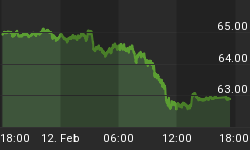Why Read: To get beyond newspaper reporting to a 'what it may mean discussion'.
Featured Article: Shortly after noon Eastern Time yesterday, multiple articles and other media coverage began of the U.S. Federal Reserve announcement that:
-
it would continue its current so-called 'twist' program to the end of 2012. Simply put, what the Federal Reserve has been doing, and now will continue to do to the tune of an incremental ¼ of one trillion $U.S. by year-end, is converting short-term U.S. treasury bills it now holds into longer-term U.S. treasury bills as the former come due. This has the effect of keeping U.S. treasury bill interest rates lower than they otherwise would be; and,
-
in a more aggressive tone than has been the case in recent Federal Reserve pronouncements, the Federal Reserve also said that :
"The committee is prepared to take further action as appropriate to promote a stronger economic recovery and sustained improvement in labor market conditions in a context of price stability."
Commentary: So what does this really mean? A few things:
-
first, note that the equity markets in North America were down yesterday at the close. This is being attributed by some, all or in part, to a perception of disappointment on the part of the financial markets that the Federal Reserve did not go far enough in with quantitative easing yesterday. To the extent that view was a contributor to yesterday's market direction, that says a great deal about:
-
the perception of the financial markets, which arguably must be that likely near-term economic reports on the U.S. economy will disappoint,
-
the financial markets themselves in the context of the interest of those markets in 'keeping the musical chairs game going', and
-
the financial markets as trading markets and not investing markets;
-
second, that the reported Q1 2012 U.S. GDP annual growth rate of 1.9% is causing the Federal Reserve serious angst, particularly in circumstances where important U.S. economic numbers (retail sales, factory production, ,job creation, and unemployment) have been reported as declining in the first two months of Q2;
-
third, the rhetoric of U.S. economic recovery - while having begun to sound hollow some time ago - is the course that the Federal Reserve will have to continue to pursue. This means that more U.S. quantitative easing is almost certainly on the way. The only question is when that will happen and what form it will take;
-
fourth, none of what is happening in the United States, Europe and other developed countries requires 'rocket science analysis' to figure out. The problem of developed country:
-
over-leverage, combined with
-
anemic to non-existent real (inflation excluded) economic growth; further combined with
-
ongoing globalization and resultant dependence on the developing countries for goods now manufactured in those countries, further combined with
-
ever increasing dependence on China to maintain its very high economic growth rates to purchase developed country goods and services, and further combined with
-
political stalemate in the United States in particular
-
all have resulted in political leaders and political influencers being in what is highly likely to prove to be 'between a very hard rock and a very hard place' where they eventually 'run out of wiggle room'.
The end-game seems obvious:
-
quantitative easing and other forms of business and populace subsidization will continue until the fiat currency system, societal disorder, or a combination of those things result in a serous multi-country financial crisis; and,
-
at that point the monopoly board will be reset, and the world will move forward.
It is unpredictable as to what changes then will result in the both the developed and developing countries. The only thing that seems certain is that things indeed will change, likely significantly in ways that are currently to some degree unpredictable - but are likely to be negative before eventually turning positive.
Anemic U.S. economy spurs the Fed to 'Twist' again
Source: The Globe and Mail, Kevin Carmichael, June 20, 2012
Reading time: 3 minutes
















